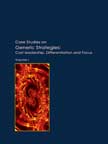The Russian Economy in the Post-Soviet Era
|
|
ICMR HOME | Case Studies Collection
Case Details:
Case Code : ECON027
Case Length : 19 Pages
Period : 19915-2007
Pub. Date : 2008
Teaching Note :Not Available
Organization : --
Industry : -
Countries : Russian Federation
To download The Russian Economy in the Post-Soviet Era case study (Case Code:
ECON027) click on the button below, and select the case from the list of available cases:

Price:
For delivery in electronic format: Rs. 400;
For delivery through courier (within India): Rs. 400 + Shipping & Handling Charges extra
» Economics
Case Studies
» Short Cases Studies
» View Detailed Pricing Info
» How To Order This Case
» Business Case Studies
» Case Studies by Area
» Case Studies by Industry
» Case Studies by Company

Please note:
This case study was compiled from published sources, and is intended to be used as a basis for class discussion. It is not intended to illustrate either effective or ineffective handling of a management situation. Nor is it a primary information source.
Chat with us

Please leave your feedback

|
|




<< Previous
Excerpts
Background Note
The USSR was founded in December 1922, with Vladimir Ilyich Lenin (Lenin) as the General Secretary of the Communist Party of Soviet Union (CPSU). The formation of USSR was based upon a political ideology that was later called as Leninism - Lenin's writings on the ideas of Karl Marx...
The Russian Economy in the Post-Soviet Era
|
After the break up of the USSR, Boris Yeltsin (Yeltsin) became the President of the Russian Federation (Refer Exhibit I for a map of Russia). As Gorbachev had more or less failed in his efforts to transform the centrally planned economy into one that was more market-based, the Yeltsin government started to implement measures seen as necessary to achieve this transformation.
In October 1991, Yeltsin and his advisers, including reform economist Yegor Gaidar , began implementing a program of radical economic reforms including macroeconomic stabilization and economic restructuring, known as
"shock therapy...
|

|
The Putin Era
The December 1999 elections to the State Duma and the March
2000 presidential elections changed Russia's political scene. Parliament's
support to the market-oriented policies of Putin and Prime Minister Mikhail
Kasyanov and their legislative initiatives helped accelerate the pace of
economic transformation...
|
Some Perspectives
In early 2007, Russia became a trillion dollar economy (on the basis of PPP).
However, according to many analysts as Russia's economy was heavily depended on revenues earned from oil exports, it would be strongly impacted any changes in the price of oil.
A big decline in the price of oil was a risk factor in sustaining high economic growth (Refer Exhibit VI for crude oil prices between 1992 and 2007)... |
Outlook
In November 2007, the World Bank released a report on the Russian economy which
said that Russia should take action to manage the inflationary situation. In the
report, inflation was described as "the most notable monetary development in
2007," and added that without proper intervention inflation would increase
further from the current 11 percent, and that the rise in inflation would lead
to price distortions...
Exhibits
Exhibit I: Map of Russia
Exhibit II: Some Economic Indicators of Russia: 1993-1998
Exhibit III: Russia's Foreign Exchange Reserves: 1992-2000
Exhibit IV: GDP Growth and Inflation in Russia: 1998-2006
Exhibit V: Some Macroeconomic Indicators for Russia: 2003-2008
Exhibit VI: Crude Oil Prices 1992-2007
Exhibit VII: Fixed Capital Investment by Different Sectors (% of Total)
Exhibit VIII: Share of FDI by Different Sectors (% of Total)
Exhibit IX: Exchange Rate of Ruble against United States Dollar: 2002-2006
Exhibit X: Some Projected Economic Indicators for Russia: 2007-2012
|
|










